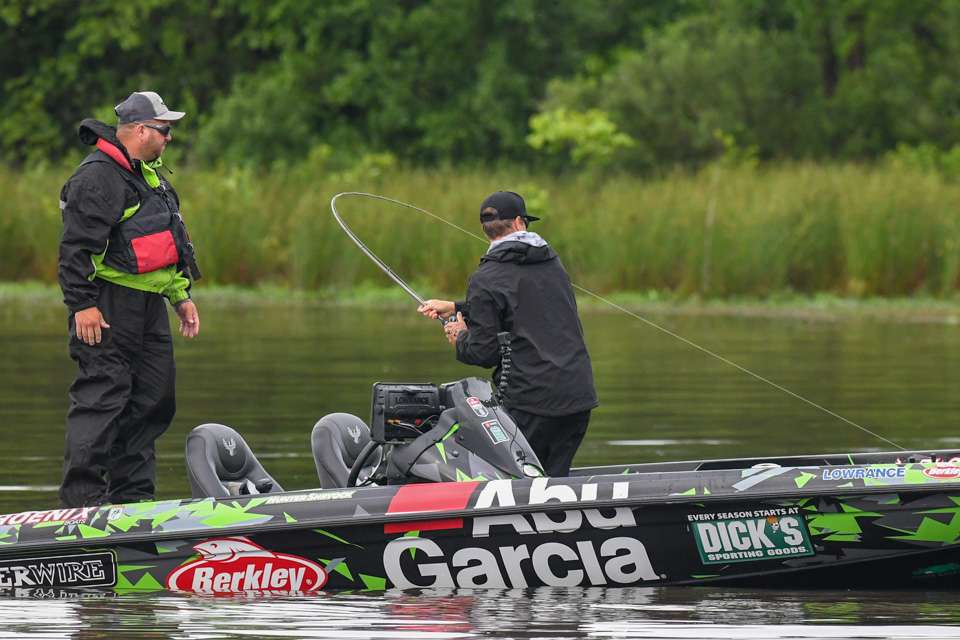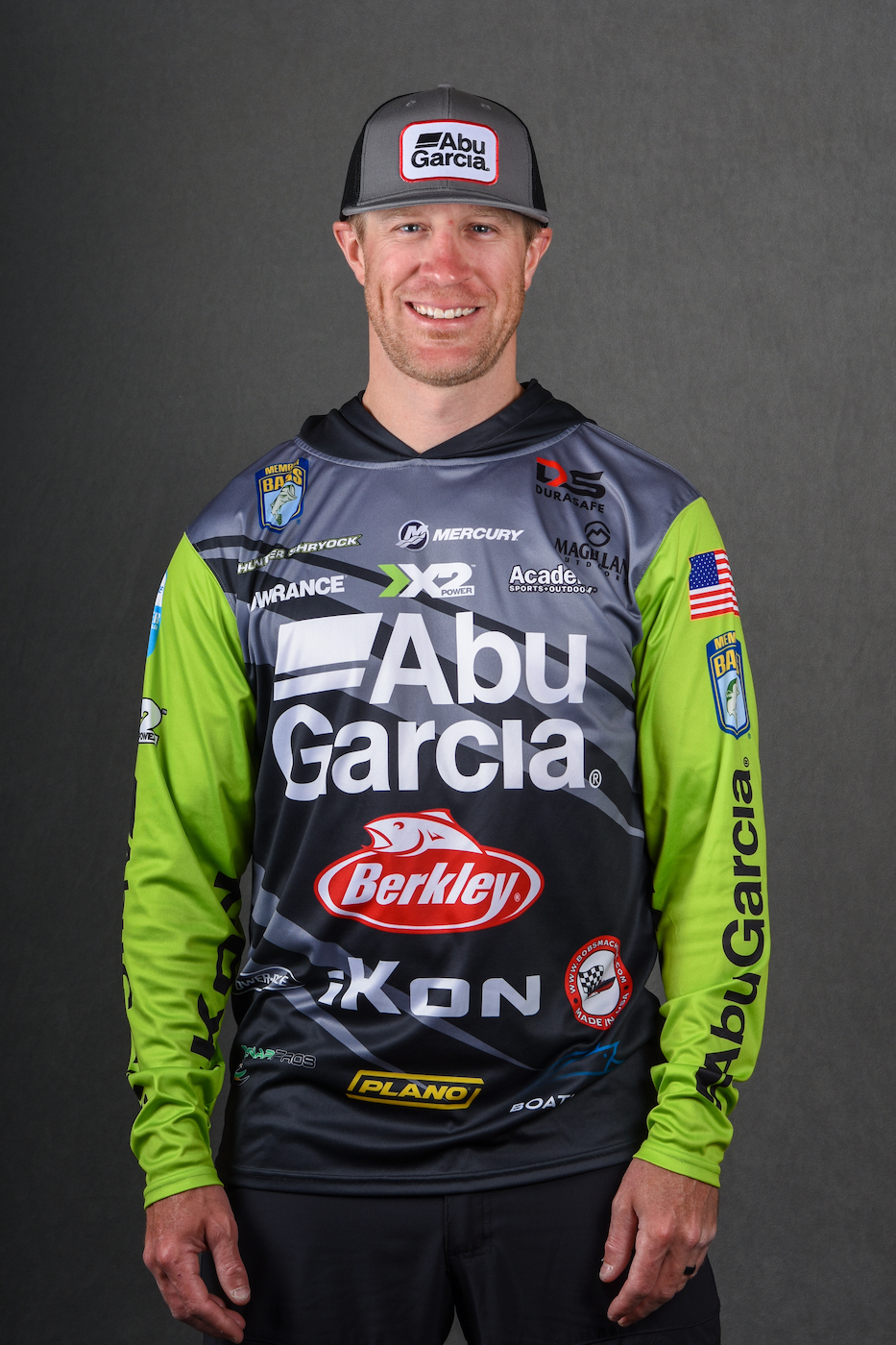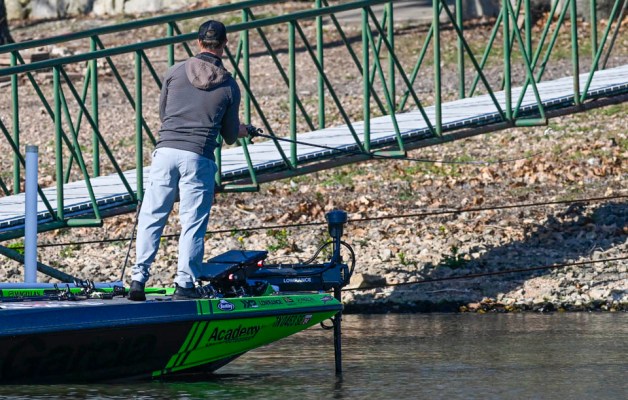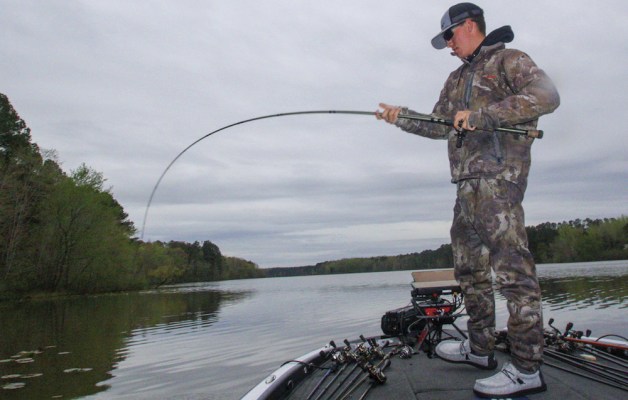
Over the past several years I’ve been making a concerted effort to teach myself how to cast proficiently with both hands. I’m not where I want to be yet, but being an ambidextrous caster has certainly helped me catch more bass.
Since I’m right-hand dominant, I naturally started out flipping and pitching with the rod in my right hand. Once my bait kissed the water, I would switch the rod to my left hand to work it and set the hook. There were instances when a bass nabbed my bait as I was switching the rod to my left hand. That caused me to bungle some of those bites.
When I started fishing the Bassmaster Opens in 2013 I decided I needed to learn how to flip and pitch with my left hand to avoid muffing those quick bites. It was winter when I embarked on this journey, so I wanted to practice indoors. I used a 6-foot Berkley Cherrywood rod I’d had since I was a kid. It was short enough to let me pitch inside without hitting the ceiling.
I put a baitcaster with 15-pound fluorocarbon on the rod and knotted the line to a 1/2-ounce jig dressed with a Berkley Chigger Craw. I cut the hook off the jig to avoid snagging anything.
I set three miniature corn hole targets up in my living room. Two of them were in corners and one was across the room. The farthest target was maybe 18 feet away. Pitching with my left hand felt goofy at first, but it didn’t take long to get into the swing of it.
Having the targets indoors made it easy to pick up the rod and practice at a moment’s notice. I toyed with it every day. As I became more proficient, I made a game out of it. I would rotate from one target to the next with the goal of dropping the jig into each hole 10 times. If I missed, I had to start over.
Sometimes I could win the game in less than 10 minutes. There were also days when I was frustrated after 30 minutes of screwing up. Whether I was on target or missing the mark, these practice sessions built muscle memory into my left arm and shoulder for pitching.
When I got on the water with a real flipping rod I was pleased to find that all that practice had paid off. I was quite comfortable pitching left-handed and soon became as accurate with it as I was pitching right-handed.
Now I pitch almost exclusively with my left hand. I’m able to make more pitches because I don’t have to switch hands, and I’m positioned to set the hook the instant my bait hits the water. To some extent bass fishing is a numbers game. The more accurate casts you make in a day the more bass you’ll catch.
Another way to overcome switching the rod from one hand to the other is by going with a left-hand reel. That way I could keep the rod in my right hand for the pitch-cast, for working the bait and setting the hook. That may be a future project.
Two years ago I decided it was time to learn how to roll cast with my left hand. I have missed a billion targets over the years that just didn’t line up for a right-hand roll cast, but they would have been open to a left-hand cast.
I had an old rod in my garage that I’d broken by dropping a trolling motor on it. I broke what was left of the rod down to the second guide above the handle so I could use it indoors. I was only about 3 feet long. My practice bait was a 1/2-ounce jig.
I started out slow. The last thing I wanted to do was break a lamp or ding a coffee table and upset the household. Even though the rod was short, making a roll cast with it required the same motion as with a regular rod. It felt really weird at first, but I could tell it was building up muscles in my left arm that I’d never used that way.
Now, I’m still no expert at making the left-hand roll cast, but I have enough confidence to try it when I come across a target I can’t hit with a right-hand cast.
I ran into that situation while fishing an Elite tournament last year. I got into a tight spot where I was unable to cast under a dock right-handed. I was just about to pull my trolling motor up when I realized I could put a bait in there by casting left-handed.
I made the cast, put my jig where it needed to be and caught a 3 1/2-pound largemouth. I never would have caught that bass without the ability to make a roll cast with my left hand.





